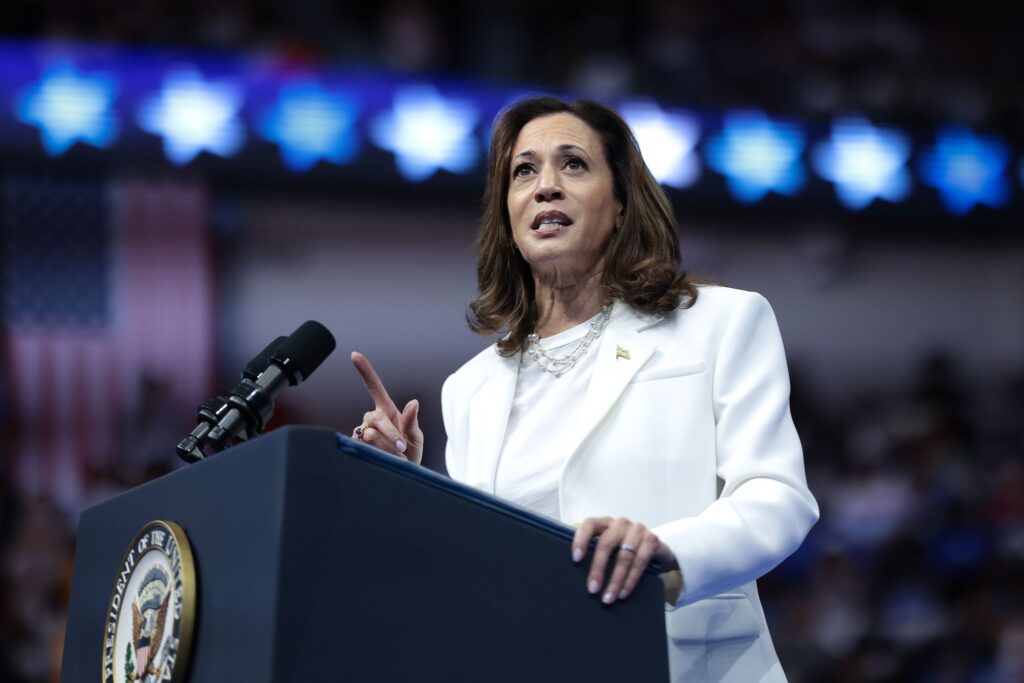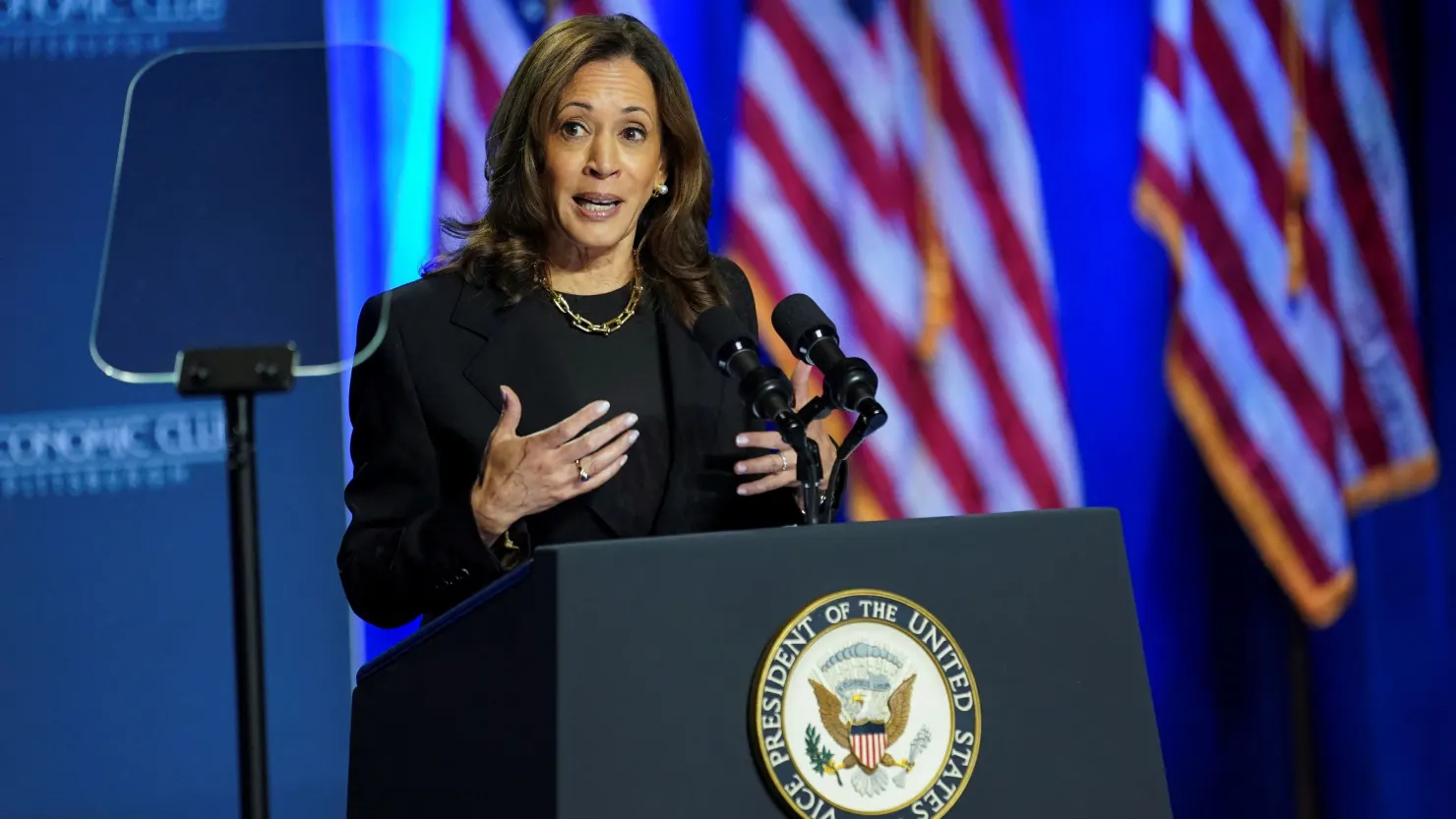The 2024 presidential race between Vice President Kamala Harris and former President Donald Trump is shaping up to be a nail-biter. But, according to a new CNBC survey of C-suite executives, corporate America seems to be betting on Harris to take the win. Surprisingly, even though Trump is seen as better on inflation and the economy, 55% of top financial executives say Harris will come out on top.
Thank you for reading this post, don’t forget to subscribe!Let’s break down what this means for the economy, and why corporate executives are leaning towards Harris despite Trump’s edge in economic polling.
Harris vs. Trump: The Corporate Perspective
In the Q3 CNBC CFO Council Survey, which gathered insights from 31 chief financial officers (CFOs) at major organizations, the majority indicated they believe Kamala Harris will win the 2024 presidential election. This marks a significant shift from the Q2 survey, where 58% of CFOs thought Trump would win.
However, it’s worth noting that these executives aren’t saying they think Harris is the best on economic issues. In fact, 55% of CFOs said Trump would be better at handling inflation and the economy. Harris garnered support from only 17% of executives on economic policy.
Let’s be clear: the economy is the issue for many Americans. Inflation, interest rates, taxes, and regulations all rank as top concerns for CFOs, and it’s no secret Trump’s message is resonating there. But, despite this, corporate America seems to think Harris will pull through, and here’s why.
The Economy: Trump’s Edge, Harris’ Challenge
So why, with a majority believing Trump would handle the economy better, do the same CFOs think Harris will win? Simple. Electability.
Trump has a strong message on the economy. He talks about lowering corporate taxes, reducing tariffs, and boosting research and development (R&D) tax credits. He’s wooing corporate leaders by vowing to return to his 2017 Tax Cuts and Jobs Act policies, which they loved. In fact, several CFOs in the survey specifically cited R&D tax incentives as crucial to their company’s future.
But Harris isn’t standing still. She’s been out there delivering speeches and interviews trying to bridge the gap between her and Trump on economic issues. In a recent appearance at the Economic Club of Pittsburgh, she outlined her economic blueprint, emphasizing tax credits for companies that create union jobs and offering support for industries like manufacturing.
Is her message catching on? Kind of.
She’s trying to position herself as the candidate for the middle class, pushing for investments in entrepreneurs and new industries while advocating for fair corporate taxes (but not too high, a clear nod to centrist voters). Harris wants to distance herself from the far-left label Trump has pinned on her. She’s not advocating for sky-high corporate taxes like Biden did—just a little bump for the ultra-wealthy.
Her message is getting some traction, but she has a long way to go to convince executives that her economic plan will work for them.

A Divided Government: The Likely Outcome
While Harris might be the frontrunner in the eyes of CFOs, nobody expects smooth sailing in Washington. Almost three-quarters of respondents in the CNBC survey believe that Capitol Hill will remain divided after the election.
In fact, 45% predict the Democrats will keep the Senate, while Republicans hold onto the House. Meanwhile, another 29% expect a flip between parties, but still predict a divided government. In short, no matter who wins the election, gridlock is on the menu.
What This Means for You
If you’re following this election and wondering how the outcome will impact your wallet, the economy is front and center. Trump’s promises on taxes and corporate-friendly policies may help certain industries thrive, but Harris’ focus on building a stronger middle class and creating job opportunities could also stabilize the economy in the long run.
The biggest issues CFOs are concerned about include:
- Inflation and interest rates (38% cited this as the top issue)
- Tax policy and regulation (24% each)
- Trade and tariffs (7%)
These topics aren’t just business concerns—they affect everyone. Rising inflation hurts middle-class families and businesses alike, and interest rates can make borrowing more expensive. Whether you’re a CEO or a regular person trying to make ends meet, these economic challenges hit hard.
What’s Next for Harris and Trump?
As both candidates continue to make their case to the American people, expect a lot more talk about the economy. Trump will hammer on his tax-cutting credentials and promises to make life easier for corporations. Harris, on the other hand, will stick with her middle-class message, pushing for fair corporate taxes and investments in key industries.
Read more: Trump Plays the Fear Card on the Economy – And It Seems to Be Working
She’s also getting some high-profile backing from the business world. Billionaire Mark Cuban has thrown his support behind her, calling her pro-business and noting that Harris’ approach differs from Biden’s. Harris, Cuban argues, is a centrist at heart—someone who will work with CEOs to grow the economy without extreme policies.
But make no mistake: Harris has an uphill battle to convince voters, especially when the majority of CFOs still believe Trump is the better choice on the economy.
The Bottom Line
Corporate America may believe Kamala Harris will win the 2024 election, but when it comes to the economy, Trump still holds the edge. As the race tightens, expect economic policy to be front and center, with both candidates making their best pitch to American voters.
No matter who wins, it’s clear that the future president will face a divided government and significant economic challenges. So, buckle up. This election isn’t just about personalities—it’s about the future of America’s economy.

